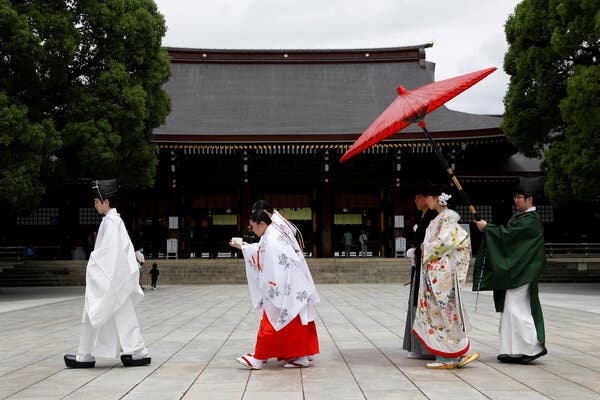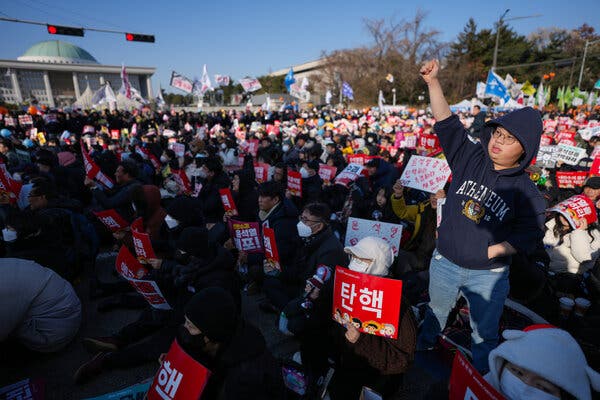The nine candidates vying to become prime minister have been differentiated by their stances on a law requiring married couples to share a family name.

Japan’s leaders have plenty to think about. The country’s population is shrinking and rapidly aging. One neighbor, North Korea, is a nuclear menace, while another, China, is escalating territorial incursions and information warfare. On top of that: climate change, ballooning national debt, inflation and a slowing economy.
But to hear the nine men and women vying to become Japan’s next prime minister talk about these challenges, it is not always easy to distinguish one from the next. One issue that does differentiate the contenders, however, centers on a 30-year-old debate over whether married couples should be able to use separate surnames.
Spouses must share a surname under a law dating from Japan’s Meiji era, which ended in 1912; in more than 95 percent of cases, women take their husband’s name. The Japanese government says it knows of no other country with such a law, and the requirement has come to symbolize Japan’s status on a constellation of women’s rights.
Much as abortion rights have become a litmus test in American politics, the marital naming law has helped define the race that opened last month when Prime Minister Fumio Kishida announced that he would step down.
On Friday, the governing Liberal Democratic Party will hold an election to replace Mr. Kishida, a deeply unpopular leader whose party became embroiled in a financial scandal on his watch.
L.D.P. lawmakers, as well as rank-and-file members from prefectural districts, will vote for a new party leader. In response to the financial scandal, a decades-old system in which candidates were selected by political factions has been dissolved. Still, backroom maneuvering will no doubt play some hand in determining the winner, who will assume the prime minister’s seat at the beginning of next month.



